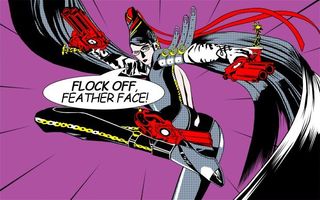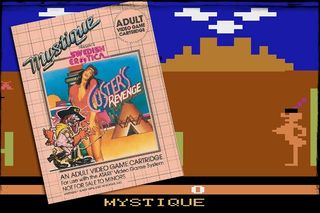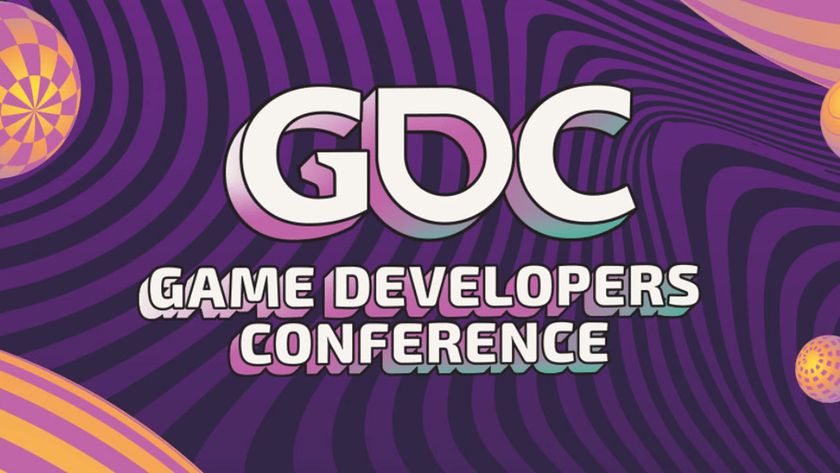The 10 best moments from the Schwarzenegger v. EMA's Supreme Court oral arguments
Plus, why some of the things people said were a bit… off

“Video games are a modern form of artistic expression.” - from the EMA’s case brief
Wow. Bet you never thought the Supreme Court would step in to settle a debate fromGamesRadar’s forum conversations, (and every other gaming site and mag) huh? Well, now they are. Maybe. Actually, they kind of aren’t.
See, the games-are-art group of gamers has been adamant that gaming, as a medium, is intrinsically artistic.Other folks have disagreed, saying that games can never be art based purely on the nature of the gaming medium. This debate has been going on for basically forever. But after hearing the response the games-are-art arguments got in the Supreme Court, you might actually conclude that both sides of this debate are wrong. Or at the very least, you might think twice the next time you try bringing up issues of art in a legal setting.

Above: IT’S A TRAP
If you’re looking for the Supreme Court to supply you with the validation your Dad won’t and say that games are intrinsically artistic, just like books or movies, don’t hold your breath. What happens when you try to argue all games are artistic based purely on the medium in which they’re presented? You end up like the lawyer for EMA during yesterday’s oral arguments, who had to defend games like Postal 2 (Warning: video NSFW) or worse yet, Custer’s Revenge as artistic forms of expression.

Above: Oh great, we have to bring this game up again?
Sure, you can say, as EMA and many others do, that the interactive nature of games enables them to be a more effective story-conveying medium. Even if a court believes you, such an argument cuts both ways: Schwarzenegger’s crew would say that that same interactive nature makes game intrinsically more capable of conveying obscenity, more effective at implanting negative behavior, and therefore a bigger danger for minors. Like we said - this line of argument is a trap.
Sign up to the GamesRadar+ Newsletter
Weekly digests, tales from the communities you love, and more
What does this mean for the future? A lot of gamers think that while some games are undoubtedly artistic, not every game that comes out can really be considered a great work of art. (Shrek: Smash n’ Crash Racing: perhaps it isn’t art.) Let’s be honest: lots of games are shit. And the problem is if we accept that, realistically, there are some games that exist or could exist which would have no artistic value, and are really awful games, and happen to be really violent and disgusting, some might have to concede that they might not be protected speech under the First Amendment. And if some would concede that point, they’ve basically agreed that the California law, designed to regulate only the worst of the worst games, is actually OK.
And if you’re a lawyer, you don’t want to concede that your opponent is actually right. Right? Well, what do you do instead? You argue that…
CHIEF JUSTICE ROBERTS: So just to be clear, your answer to Justice Alito is at this point there is nothing the State can do?
MR. SMITH (lawyer for the EMA): Because there is no problem it needs to solve that would justify -
CHIEF JUSTICE ROBERTS: Could I just have a simple answer?
MR. SMITH: The answer is yes, Your Honor.
CHIEF JUSTICE ROBERTS: There is nothing the State can do.

Actually, hats off to the EMA attorney for having the balls to say something like this. Managing to more or less dodge the sticky question posed earlier (“are admittedly terrible games like Postal 2 protected speech?”), he shifts the focus of the discussion to whether or not the State can actually be justified in regulating games. On the one hand, this makes it easier for him to shift his focus back to the fact that there is no “compelling state interest” in regulating violent videogames. In other words, it allows him to say that even if these videogames are shitty, they’re not shitty enough to make state-wide regulation necessary.
But then, on the other hand, he just told the Supreme Court that the government is powerless and should f**k off. Not a move that’s going to make him super popular with the Justices, especially those Justices who actually want to prevent kids from playing Postal 2 and are looking for a legal means to do so.
What does this mean for the future? These last two quotes from the oral arguments hit on the biggest problem with the game industry’s stance: it’s extreme. Extreme viewpoints in the Supreme Court are usually pretty risky. Telling the State it has no available means to prevent games from getting to minors is pretty bold. But just because a viewpoint is extreme doesn’t mean it can’t sometimes prevail. Maybe all videogames will turn out to be judged as protected speech? We’ll have to see.
MR. MORAZZINI: I think a jury would be charged with perhaps the standard of what the community believes [is] an average minor. So [a jury] would consider --
JUSTICE SCALIA: An average minor is halfway between 0 and 18; is that 9 years old?
MR. MORAZZINI: Fair point, Justice Scalia.
Oh, that Justice Scalia! The court was in stitches, trust us. Justice Marshall totally lol’led.
Despite the fact that he is just kind of being a dick, Scalia makes a good point. What exactly is the difference between an obscenity for a 17-year old, and an obscenity for a 9-one-year-old? The California law puts them all into the same “class” of people. Is it fair to group every kid together like that?
What does this mean for the future? A member of the National Youth Rights association that we spoke to at the rally had a great point about the California law. The law states that a “parent” can purchase a game for a minor, but nowhere in the law does it say that the “parent” who buys the game must be over 18. In other words, the law does not prevent underage parents from buying violent videogames for their even-more-underage kiddies.
What does this mean for you if you’re under 18, live in California, and the Supreme Court doesn’t strike down this law? Guess you better go get a girl pregnant, so you can buy the game “for the baby”. Legally.














